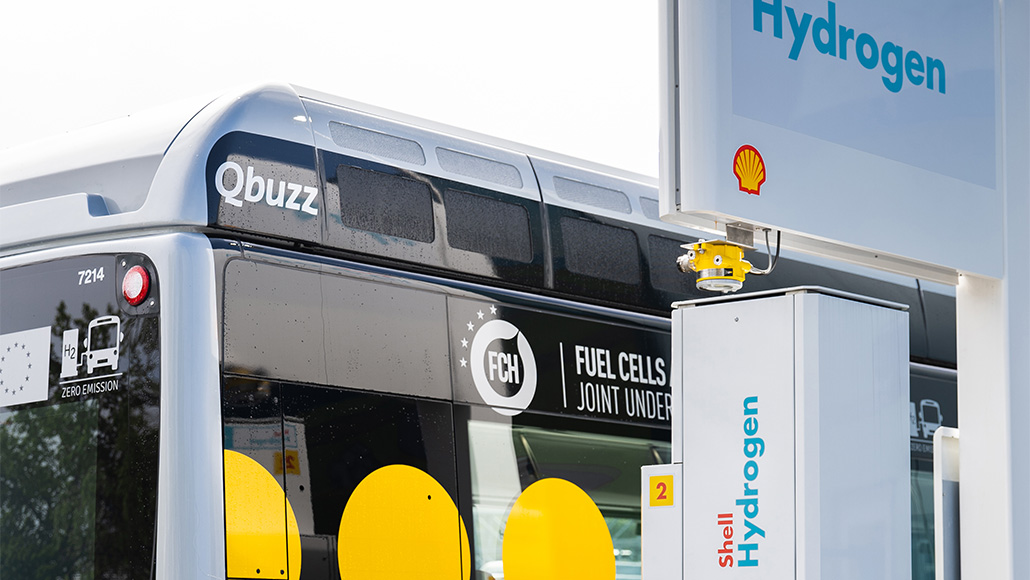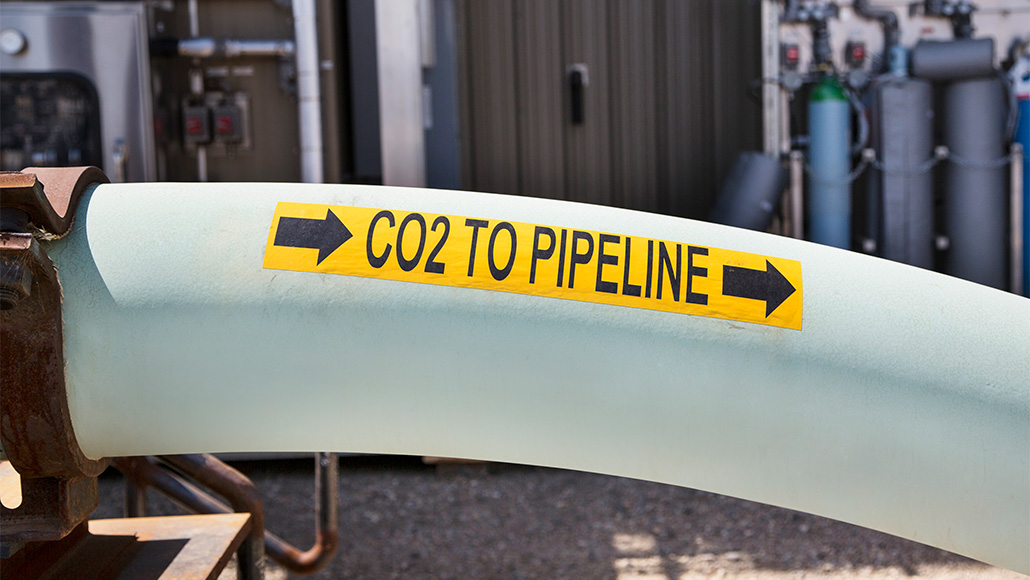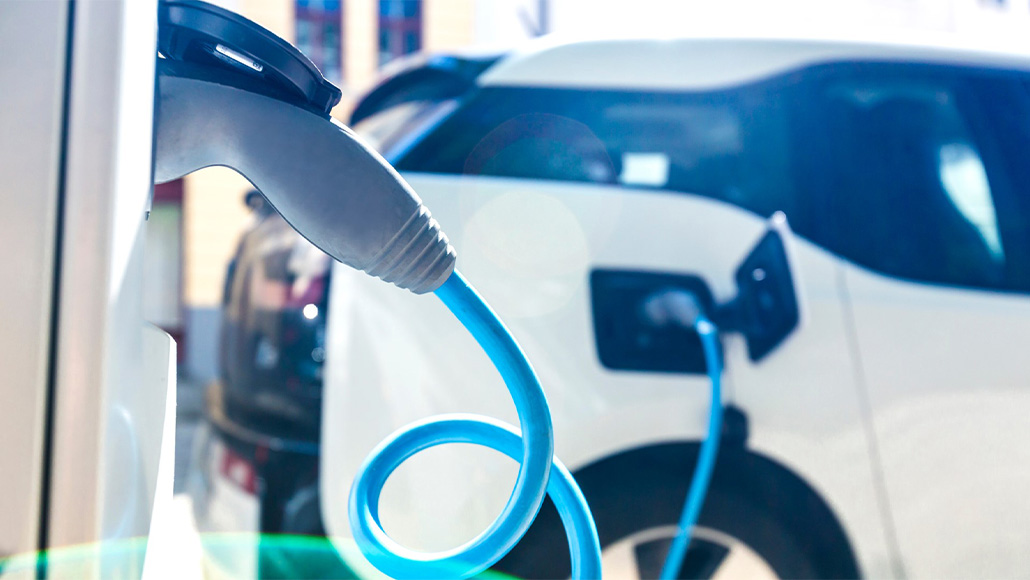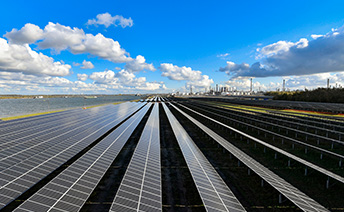Climate and energy transition lobbying review
We use our global climate and energy transition policy positions to inform and guide our advocacy. We prioritise and adapt these positions at an international and country level, ensuring we support our Powering Progress strategy while taking account of the local political and policy landscape.
In 2022, we advocated a wide range of climate and energy transition policy issues. We provide a summary of areas in which we were particularly active. We also plan to publish more updates on our positions, and examples of our advocacy on specific policies and legislation, on our website.
An increasing number of countries are committing to targets to achieve net-zero emissions by 2050; around 90% of global emissions are now covered by country net-zero emissions commitments, although not all by 2050.[1] More legislation is urgently needed to ensure that these commitments are turned into action.
In 2022, the EU continued to develop its Fit for 55 package of measures – a blend of carbon pricing and regulation first proposed in 2021 – to achieve net-zero emissions by 2050. We advocated to EU institutions directly in support of many parts of this package and provided policy recommendations to help support its delivery.
In the USA, we support the Biden Administration’s target of net-zero emissions by 2050 and calls for ambitious 2030 greenhouse gas emission reductions in line with the 2050 target. We have engaged with Members of Congress and the Biden Administration on policies we believe will help move the USA toward its net-zero emissions by 2050 goals. For example, we supported the Inflation Reduction Act of 2022, which includes clean energy provisions. Our advocacy included engaging the US government directly, and through coalitions such as the CEO Climate Dialogue, Energy Pathways USA and the Climate Leadership Council.
In Canada and Australia, we have supported the governments’ net-zero by 2050 targets and engaged governments directly, and through associations, on policies to help achieve this.
In the UK, we supported the government’s climate compatibility checkpoint in 2022, which aims to ensure that new oil and gas licences in the UK Continental Shelf are evaluated against the UK’s climate objectives. We also submitted evidence to the government’s review of its approach to net zero.
In South Africa, during 2022, we engaged with the government, industry partners, and think tanks to collectively find ways to promote low-carbon energy choices, including through our contribution to the National Business Initiative’s Climate Pathways and a Just Transition for South Africa project.
We publish some of our scenario thinking to help governments, academia and businesses think about the long-term challenges that they, and the world at large, could face.[2] [3] We have produced scenario sketches, some of which explore possible net-zero pathways for countries or regions. We use these sketches in our engagements with policymakers and other stakeholders.
In 2022, we published our Indonesia scenario sketch, which explores how Indonesia could transform its energy and land use systems to make the transition to net-zero emissions by 2060. In previous years, we have published scenario sketches for Singapore, China, India, the USA and the EU. In March 2023, we published our energy security scenarios, which look into the possible energy and climate outcomes that could result from a world that has security as its dominant concern.[4]

International net-zero initiatives
Through the Mission Possible Partnership, we are involved in several sector-based initiatives, including the Getting to Zero Coalition for shipping, Clean Skies for Tomorrow Coalition for aviation, Road Freight Zero coalition for heavy-duty road transport, Net-Zero Steel Initiative for the steel sector, Concrete Action for Climate for the concrete and cement sectors, and Aluminium for Climate for the aluminium sector. We are also involved in the World Economic Forum’s Accelerating Clean Hydrogen Initiative.
These coalitions of companies, investors and governments are helping to create pathways to net-zero emissions by identifying technological solutions, addressing funding and market challenges, and advocating enabling government policies.
We support a direct price on carbon emissions and believe it is a critical policy to achieve net-zero emissions. The carbon price, whether through a carbon tax, cap-and-trade, or a hybrid system, should apply to as many sectors of the economy as possible and increase over time.
We believe that clear rules on Article 6 of the Paris Agreement – which governs the trading of carbon credits between nations, including credits generated by CCS and nature-based solutions (NBS) – are essential for carbon removal and achieving net-zero emissions. We have advocated rules to ensure that international carbon credit transactions have environmental integrity by avoiding double-counting across national inventories. Our advocacy has been strengthened by our memberships of the World Bank’s Carbon Pricing Leadership Coalition, the International Emissions Trading Association, International Chamber of Commerce and World Business Council for Sustainable Development.
The development of carbon pricing policy is at different stages in countries and regions around the world, and our advocacy reflects this. We aim to share best practices from more established schemes with countries or regions that are seeking to develop their own.
In the EU, we have long supported the EU Emissions Trading System (ETS), and in 2022 supported the EU Commission’s proposal to align it with the EU’s 2030 greenhouse gas emissions target. To help address the risk of carbon leakage, we supported the gradual phase-out of free allocation of allowances under the EU ETS with the simultaneous phase-in of an effective Carbon Border Adjustment Mechanism (CBAM). We welcome the EU ETS reform announced in December 2022 that will provide more meaningful carbon pricing, in line with the EU’s 2030 ambition and its expansion to cover maritime, road transport and buildings. We also support the concept of linking the EU ETS and the UK Emissions Trading Scheme.
In Canada, in addition to the existing carbon pricing systems, the government has proposed a new cap on oil and gas sector emissions at current levels, with declining reduction targets to achieve net zero by 2050. In 2022, we supported the intent of this proposal but have concerns about the implementation of the policy due to overlap with existing regulations and potential for this uncertainty to discourage low-carbon investment. We have advocated directly to the government and through industry associations about these concerns.
In the USA, although there are currently no federal government carbon pricing proposals, we promote carbon pricing in other climate policy discussions. We advocate carbon pricing directly to government and through coalitions such as the CEO Climate Dialogue and Climate Leadership Council (CLC). We advocated the inclusion of a carbon price in the US Inflation Reduction Act of 2022, although this was ultimately not included.
In Australia, there has been much policy debate in recent years about carbon pricing. In 2022, we supported the government’s Safeguard Mechanism Reforms to reduce emissions limits, called baselines, predictably and gradually on a trajectory consistent with achieving net zero by 2050.
In Brazil we contributed to discussions on carbon pricing, through engagement with government and through several business and sustainability coalitions. We also co-sponsored studies into the role of carbon pricing.

We support policies to accelerate the deployment of decarbonised hydrogen. This includes hydrogen produced through electrolysis and hydrogen produced from natural gas together with CCS. It also includes hydrogen-based fuels, based on life-cycle analysis greenhouse gas intensity measures. We believe that hydrogen will play a particularly important role in hard-to-abate sectors.
At an international level, we have published a list of policies we believe are needed to accelerate hydrogen deployment and have worked with others to advocate these policies and the role of hydrogen. For example, our former CEO Ben van Beurden chaired the Sustainable Markets Initiative’s (SMI) Hydrogen Task Force. We supported the SMI’s Flipping the Switch recommendations to the G7 in 2022, which called for the establishment of a meaningful carbon price and effective carbon markets, better use of public funds, and a stable and predictable policy environment.
In the USA, we supported the hydrogen production tax credit in the Inflation Reduction Act of 2022, building on our support for the hydrogen provisions in the Infrastructure Investment and Jobs Act (IIJA) of 2021. We believe the government should offer the same level of tax credits for decarbonised hydrogen produced from natural gas with CCS as it does for hydrogen produced with wind and solar power. We believe that equitable tax treatment would encourage demand for hydrogen and investment in the necessary hydrogen infrastructure. We advocated to government directly and through the Clean Hydrogen Future Coalition and C2ES.
In the UK, we support the government’s hydrogen policy and in 2022 provided detailed views to government about the design and implementation of business models for hydrogen transport and storage infrastructure, strategic planning, market frameworks and regulatory arrangements. In the Netherlands, we supported the national hydrogen strategy.
In the EU, in 2022, we called for binding targets in the Renewable Energy Directive to accelerate the use of renewable hydrogen in hard-to-abate sectors such as industry and transport by 2030.[5] We also supported the EU Hydrogen and Gas Markets Decarbonisation package, since we believe that the existing gas legislative framework needs to be extended to renewable and low-carbon gases, including hydrogen.
In Australia, we also supported extending the national gas framework to include hydrogen and renewable gas.

We support policy mechanisms to drive deployment of CCS at scale. At an international level, we have advocated directly to governments and through the Global CCS Institute, Sustainable Markets Initiative, CCUS Taskforce and CCS+ Initiative for common standards and rules to facilitate cross-border CO2 transport and storage. We believe these will contribute to cost efficiencies and support investment, particularly for cross-border CCS projects that need access to storage sites in different countries.
In the USA, we supported the CCS and Direct Air Capture (DAC) provisions included in the Inflation Reduction Act of 2022. These provisions complement the CCS and DAC provisions in the Infrastructure Investment and Jobs Act, which we supported in 2021. In combination, we believe the provisions in the two bills could spur dramatic deployment of CCS in the USA if the federal and state governments can ensure timely permitting. In Canada, we supported the government’s CCS investment tax credit and encouraged policymakers to consider the potential implications of the US Inflation Reduction Act on the competitiveness of Canadian CCS projects.
In the EU, as part of discussions about the update of the EU ETS, we called for the ETS to encourage investments in carbon removal through geological and natural sinks. We also supported the EU proposal to introduce a certification framework for carbon removals, and regulation to recognise and provide incentives for the development of integrated transport and storage networks for CO2.
In India, we continued to engage with the government, industry partners, think tanks and academic institutions to collectively find ways to promote low-carbon energy choices. In 2022, we launched a carbon capture utilisation and storage industry coalition with our partners. It aims to encourage the creation of government policies to support the development of CCS projects in India.

For passenger cars and vans, we support the setting of clear timelines for the widespread adoption of zero-emission vehicles and associated infrastructure.[6] Although markets will vary in pace, we believe that several measures are needed including: the promotion of investment in infrastructure for electric vehicles, incentives to purchase low- and zero-carbon vehicles, the generation of adequate amounts of renewable power, and incentives to produce alternative and low- and zero-carbon fuels.
Our advocacy reflects the fact that policy discussions are at different stages around the world and that different countries have different levels of infrastructure, demand and industrial priorities. Policy for passenger cars and vans is typically discussed at a country or regional, rather than international, level.
In 2022, we supported the EU proposal to ban the sale of new petrol and diesel cars and vans in the EU from 2035. We have supported similar bans in the UK and the Netherlands by 2030. We also supported the most ambitious infrastructure targets for charging for electric cars and vans in the EU’s Alternative Fuels Infrastructure Regulation.
In the USA, we supported the National Electric Vehicles Infrastructure programme and made recommendations in relation to the proposals. We supported expanded tax credits for electric vehicles in the Inflation Reduction Act of 2022, and zero-emission vehicle deployment and infrastructure provisions in the Infrastructure Investment and Jobs Act of 2021. We have also supported the California Advanced Clean Cars II regulation that requires all new passenger cars sold in California to be zero-emissions by 2035. However, we believe there needs to be a more comprehensive clean infrastructure plan to accompany this regulation.
In Canada, in 2022, we supported the government’s intent to require all new light-duty vehicles sold in Canada to be zero-emissions by 2035. We believe that regional considerations are important and that there will be a role for other low-carbon solutions such as hydrogen and biofuels in certain contexts.
In Australia, in 2022 we broadly supported the government’s National Electric Vehicle Strategy.

We believe that sustainable aviation fuel (SAF) has a critical role to play in helping to decarbonise aviation. We support the introduction of mandates or incentives for SAF.
At an international level, in 2022, we advocated and welcomed the International Civil Aviation Organization’s (ICAO) adoption of a net-zero emissions by 2050 goal. We continue to work with ICAO and its member states, asking for global alignment on policy frameworks to achieve the goal, including a 10% SAF mandate by 2030. We advocate to ICAO mainly through our memberships of the Advanced Biofuels Association and Ipieca. We also advocate through our strategic partnership with the International Air Transport Association.
In the EU, we supported the ReFuelEU Aviation Regulation, including advocating a more ambitious SAF blending mandate of 10% by 2030 compared to the original Commission proposal.
In the UK we have advocated policies that encourage the development and deployment of SAF, both directly and as a member of the Jet Zero Council. These includes measures to encourage both demand for SAF, and its production and supply. The government has announced plans to have a SAF mandate of 10% by 2030, which we support.
In the USA, we supported the new tax credit for SAF in the Inflation Reduction Act of 2022.

We expect electricity will play a much greater role in the final energy mix as the energy transition progresses. We are calling for the acceleration of electrification using renewable and low-carbon power sources, with policy needed to unlock both demand and supply.
At an international level, we supported campaigns by global organisations such as the World Business Council on Sustainable Development to increase the production and use of renewable energy sources. We carry out most of our advocacy around renewable and low-carbon power at national and regional levels.
In the USA, we supported various clean energy provisions in the Inflation Reduction Act of 2022, including tax credits for wind and solar production. Within the Infrastructure Investment and Jobs Act, we believe that investments should be directed at the modernisation and expansion of the US power grid in line with the stated ambitions of the US Congress.
In the EU, we support the overall EU renewables target of 45% by 2030, that is aligned with the REPowerEU ambition. We believe that achieving this target will require unprecedented levels of investment – for instance, in grids – and also regulatory action, such as permitting from governments. Through our advocacy on the EU’s Renewable Energy Directive, we supported the European Commission’s plan to advance electrification in all sectors of the economy as much as possible. We also welcomed the Commission’s proposals for simplifying and speeding up renewables permitting, as presented in the REPowerEU Plan.
In the UK, in 2022 we provided views on options for reforming UK wholesale power markets to help deliver the government’s targets for a decarbonised power sector by 2035. This included our views on the potential merits of moving from a market where wholesale prices are set on a national basis to a market where prices are set based on zones. It also included our views on options for reforming the Contracts for Difference scheme for low-carbon power generation and additional measures to support demand and supply-side flexibility.
In Australia, we remain in discussions with the government on the capacity investment scheme. This scheme aims to increase the amount of renewable energy available in the grid when it is needed.
In Brazil, the government took several important steps during 2022 towards the creation of a regulatory framework for offshore wind. We have been actively supporting this through direct engagement with government and through coalitions and industry partners.

Reduction of methane emissions from our upstream assets is a major priority for Shell. We advocate the reduction of methane emissions through direct regulations such as performance standards based on robust monitoring, reporting and verification frameworks, and the ending of routine flaring. See our case study about tackling methane emissions.

[1] https://zerotracker.net/ (accessed March 1, 2023)
[2] https://www.shell.com/scenarios
[3] Our scenarios are intended as an aid to making better decisions. They are absolutely not predictions or expectations of what will happen, or even what will probably happen. They are not Shell’s strategy or business plan and they do not necessarily reflect the thinking or behaviour of the business.
[5] European Union legislation determines under what conditions the hydrogen produced can be defined as Renewable Hydrogen or as a Renewable Fuel of Non-Biological Origin (RFNBO). The criteria are covered by the Renewable Energy Directive and its associated Delegated Acts. Some parts of the relevant EU legislation such as the Delegated Acts are under discussion and have not yet been finalised.
[6] Zero-emissions vehicles (ZEVs), which include battery electric vehicles, plug-in hybrid electric vehicles and fuel cell electric vehicles.










